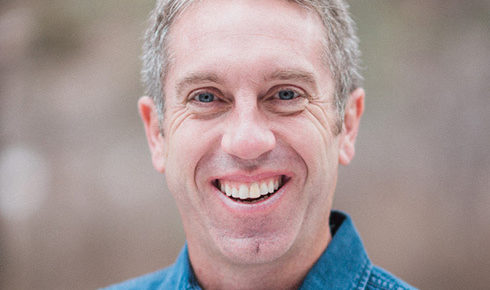
It started as a typical Thursday morning in the office—coffee in hand, sitting down to finalize my message for the upcoming weekend—when two police officers showed up with the worst news a parent can ever receive.
Our oldest son, Chase, had died in a one-car accident on his way to work that morning. Our world immediately turned upside-down. Even now, more than a year later, as I write this devotional, my heart breaks, and I yearn to see my son again.
As pastors and leaders, we often run from the pain and uncertainty in our lives and in the lives of others. We put on a strong face, not letting our churches know how broken we actually are. We keep a safe distance from others to shield them from seeing our wounds or to keep their burdens from becoming our own. But I could not run from this pain or try to turn it off when I was in front of our congregation. Pretending everything was OK was not an option.
Jesus incarnated Himself in our brokenness. Isaiah, the prophet, reminds us that Jesus was acquainted with our grief (Isa. 53). Somehow the Son of God entered into our pain, our questions and our misunderstandings. We see it in His interactions with the woman at the well, the adulteress in the dirt about to be stoned to death, the little guy up in the tree and the denying disciple.
“The Spirit of the Lord is upon Me, because He has anointed Me to preach the gospel to the poor; He has sent Me to heal the brokenhearted, to proclaim liberty to the captives and recovery of sight to the blind, to set at liberty those who are oppressed; to proclaim the acceptable year of the Lord” (Luke 4:18-19, NKJV).
My district supervisor, Gabe Barreiro, recently said: “I continually marvel at the life Jesus modeled in the public domain. The Scriptures show us His transformative interactions with people along the broken road of life.” I’ve realized something since my son went to be with Jesus: The gospel stands as much in humility and brokenness as it does in power and victory. The gospel is as much “I was blind” as it is “I can see.” The gospel is embodied by you and me in the public domain as we live authentic lives before our God, ourselves and others.
The culture doesn’t need our pious, religious sayings, such as, “God is good, all the time, and all the time, God is good.” What the world needs to see is that God is good in our brokenness, and that He even works through our brokenness. God is good, not just on the other side of our pain: He’s good in it. We don’t have to hide our pain until it has been remedied. Every great story has conflict and tension. We must stop hiding ours from the people in our churches and communities.
You are good news. Your story and your journey, in all its rawness, is good news to a world without answers and without hope. Without Jesus. The gospel, as we embody it, is not devoid of our own struggle; it is birthed from it.
Prayer Points
- Ask the Lord for a trusted relationship or two in which you can share all your brokenness and hurt. Be selective. Choose someone of the same gender who has your back and whom you are confident will keep what you share confidential.
- In your next message or leadership talk, pray about sharing a current struggle in your personal life, asking the Lord for discernment on how much to share.
- Allow God to give you fresh eyes to see the hurt and brokenness around you—in your own family, in your congregation and in your city. Ask Him for the heart to respond with compassion and mercy.
Share your thoughts. See comments below, and add your own.


